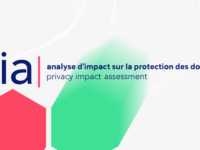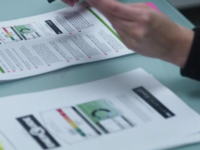National Doctors Training and Planning has commenced The Spark Innovation Program, designed to empower junior doctors to innovate and make positive changes within the public health system.
In a traditionally bureaucratic environment where innovation is not encouraged, the Spark program not only enables innovation but actively encourages it. Through this empowerment of initiative, creativity and expertise, retention of staff is also addressed and morale increased.
Innovation Tag: Public Service Delivery
The General Data Protection Regulation (GDPR) requires that organisations carry outData Protection Impact Assessments (DPIA or PIA) prior to starting a likely risky processing operation. The PIA tool is a free and open source software tool, available as a standalone and “server” version. It helps organisations to conduct PIAs by guiding them through the process step-by-step, and thus to demonstrate compliance with the GDPR.
NRCan's Office of Energy Efficiency (OEE) Social Innovation UnLab (SIU) is working with program colleagues and Carrot Insights to deliver an energy efficiency rewards pilot via the Carrot Rewards mobile app. Our hypothesis: Engaging Canadians on their smartphones and gamifying learning and action will improve awareness and adoption of energy-efficient behaviours. The pilot is delivering results and entering its third phase this year (2018).
Carrot Rewards is a platform promoting healthy living and public engagement that leverages behavioural economics, mobile tech and the power of loyalty programs to motivate and educate users to make better everyday lifestyle choices for themselves, their families and the planet. Created in collaboration with public sector agencies, leading Canadian health NGOs and the private sector. With over a million downloads, Carrot is driving sustainable positive behaviour change on a population scale.
Services Guide is a response to the scattered and inefficient information on public services available, developed as an open data digital catalogue, that together with an artificial intelligence software provides personalised information to the user while collecting data about citizen’s needs at the same time.
The OEE established a Social Innovation "UnLab" (SIU) to test an embedded innovation model and amplify energy efficiency policy and service impacts in Canada. The SIU creates value for energy efficiency stakeholders in three ways:
Building relationships and capacity for energy efficiency policy and service innovation;
Generating evidence and collective learning by co-creating and testing insights and interventions;
Amplifying impacts by scaling learning and implementing what works.
A first of its kind (in our context), cross-jurisdictional partnership between three levels of government to research, co-design and test prototypes with citizens to inform and improve the experience and uptake of home energy efficiency labeling and reporting.
The core team was comprised of representatives from Natural Resources Canada’s (NRCan) Office of Energy Efficiency (OEE), the Province of Alberta’s CoLab, and the City of Edmonton with service design support from Situ Strategy.
For the first time in India, over 100 million citizens have been conferred a legal right to grievance redress. The Bihar Right to Public Grievance Redressal Act also provides a no-wrong door policy (every complaint compulsorily received in any centre in Bihar or digitally and acknowledged) and power parity between citizens and public authority (specially mandated independent, quasi-judicial officers provide a one-stop solution after weighing evidence from both sides).
Case Study
Vitamin Lab: How to Take Citizen Responsiveness and Integrity in Health Services to the Next Level

The innovation was developed to tackle the problem of corruption in the Lithuanian healthcare sector. We conducted a Vitamin Lab experiment to find out if the change of the clinic’s environment indirectly affects the behaviour of patients, how it can influence their attitudes towards the clinic, increase transparency and reduce bribery. To our knowledge, it was one of the first initiatives to use this type of measured social design interventions in the context of healthcare sector corruption.
With the complex service system, it is difficult to help young people with numerous problems. The MY LIFE working method is a co-created, human service integration for young adults, complete with case management, a survey assessment, and an ePlatform.






